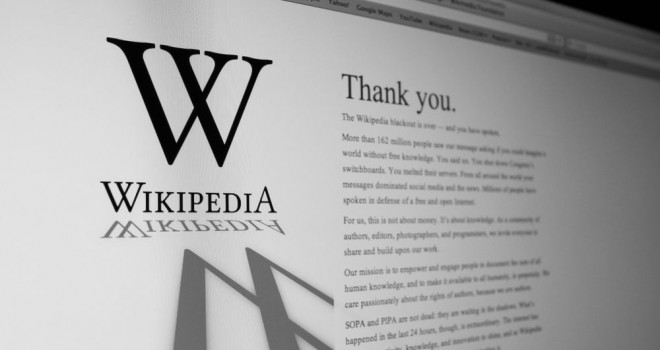
Should teachers and students embrace Wikipedia or shun it?
Literacy, reliability and credibility are becoming increasingly complex as the internet’s growth provides a huge spectrum of content
A few weeks ago the old, renowned and prestigious Encyclopedia Britannica announced that it would stop producing its editions in print volumes and only keep to online pages. Many people pointed to Wikipedia as the ‘killer’ and regarded the moment as the triumph of the new, digital, wiki world.
And yet many people, especially educators, are far from happy with Wikipedia’s total supremacy. Over the past several years a number of articles have been written with telling titles such as ‘A stand against Wikipedia’, ‘Wikipedia is not a reliable source’, and ‘Why you can’t cite Wikipedia in my class’, not to mention a library poster asking students to ‘Just say No to Wikipedia’.
In 2009, Wichita State University (in Kansas, US) forbade the usage of Wikipedia citations in any thesis to be submitted. Other educators, however, looking at the picture with more nuances and subtlety countered with articles titled ‘Wikipedia is good for you’ and ‘Wikipedia: friend, not foe’.
So where does the truth lie, and how should the education community (teachers and students) deal with Wikipedia? Let us begin by diagnosing the problems that made many educators react so strongly against Wikipedia.
There is no doubt that Wikipedia makes it easy for lazy students not to do any real research. Copy-pasting has become much too common in submitted papers, especially for students who wait until the last day to do their assignments.
And Wikipedia, with its three million entries (in a hundred languages) covering almost every possible topic that one can think of, is the ‘perfect’ resource for such quick-and-dirty homework.
But that is not the main problem created by Wikipedia. Indeed, copy-pasting can be done from any reference, and not just online ones, and there are millions of very good websites from where that can be done. The most important concern with Wikipedia is its lack of reliability/credibility, whether real or perceived. Educators worry that students will take less-than-scholarly information from Wikipedia and, if they don’t check, will end up (re)producing incorrect ideas and theses.
Shallow coverage
This brings up a number of issues that educators need to resolve. Clarifying these will help us all adopt a constructive educational strategy.
First, the fact that Wikipedia entries are composed by people of varying expertise does not imply that the encyclopedia’s content is mediocre. Readers may be surprised to learn that a serious study (published in one of the most renowned journals) in 2005 found 3.86 errors per article in Wikipedia, compared to 2.92 errors per article in Britannica.
More importantly, one must keep in mind that Wikipedia entries are very easy and quick to correct, and indeed errors rarely stay on for long. Another study, done at the University of Alberta in 2009, concluded that “overall, [Wikipedia] articles are objective, clearly presented, reasonably accurate, and complete, although some are poorly written, contain unsubstantiated information, and/or provide shallow coverage of a topic”.
The key issue is then to identify which ones of those (few) Wikipedia articles need to be ignored or at least handled with care.
Secondly, teachers and students need to become much better acquainted with Wikipedia’s features, including its ‘Edit’, ‘History’, and ‘Talk’ tabs. Most people who view an entry on Wikipedia are only aware of the (main) ‘Read’ page, which is the one that we automatically get when we search for a topic, but the “History” tab can be extremely useful in knowing about the changes that the entry has been subjected to, the “Talk” one allows for discussion of any controversial aspects of the topic, and the “Edit” tab allows people to make modifications. Most people are also not aware that Wikipedia introduced a “locking down” feature to protect some articles from “edit wars”, and the online encyclopedia has an army of volunteer editors who follow up on postings or edits with remarks, particularly on the need for references on specific claims.
To summarize, Wikipedia has its pros and cons, though I believe its pros largely outweigh its cons. Indeed, recent studies have shown that academic papers (published by university researchers) now often cite Wikipedia entries in their reference lists. But this requires proper selection of sources, and checking and filtering of information.
This is what we need to teach our students: how to find valuable information on the web, including but not limited to Wikipedia. Any encyclopedia, and Wikipedia is just a larger, quicker version, can and should only be a starting point for research.
More generally, we educators need to adapt to the fast changing digital world of information and knowledge. Literacy, reliability, and credibility are becoming more and more complex as blogs, forums, mailing lists, Facebook, YouTube, and Twitter are now providing a huge spectrum of content, ranging from the extremely rich and valuable to the second-rate or worthless. But education is indeed to become capable of dealing with an ever-changing world.
By Nidhal Guessoum, published in Gulf News, March 30th 2012.
Nidhal Guessoum heads the Physics department at the American University of Sharjah.

